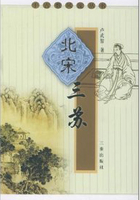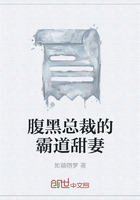Driven by the dreadful stress of poverty, goaded by Lisbeth, and kept by her in blinders, as a horse is, to hinder it from seeing to the right and left of its road, lashed on by that hard woman, the personification of Necessity, a sort of deputy Fate, Wenceslas, a born poet and dreamer, had gone on from conception to execution, and overleaped, without sounding it, the gulf that divides these two hemispheres of Art. To muse, to dream, to conceive of fine works, is a delightful occupation. It is like smoking a magic cigar or leading the life of a courtesan who follows her own fancy. The work then floats in all the grace of infancy, in the mad joy of conception, with the fragrant beauty of a flower, and the aromatic juices of a fruit enjoyed in anticipation.
The man who can sketch his purpose beforehand in words is regarded as a wonder, and every artist and writer possesses that faculty. But gestation, fruition, the laborious rearing of the offspring, putting it to bed every night full fed with milk, embracing it anew every morning with the inexhaustible affection of a mother's heart, licking it clean, dressing it a hundred times in the richest garb only to be instantly destroyed; then never to be cast down at the convulsions of this headlong life till the living masterpiece is perfected which in sculpture speaks to every eye, in literature to every intellect, in painting to every memory, in music to every heart!--This is the task of execution. The hand must be ready at every instant to come forward and obey the brain. But the brain has no more a creative power at command than love has a perennial spring.
The habit of creativeness, the indefatigable love of motherhood which makes a mother--that miracle of nature which Raphael so perfectly understood--the maternity of the brain, in short, which is so difficult to develop, is lost with prodigious ease. Inspiration is the opportunity of genius. She does not indeed dance on the razor's edge, she is in the air and flies away with the suspicious swiftness of a crow; she wears no scarf by which the poet can clutch her; her hair is a flame; she vanishes like the lovely rose and white flamingo, the sportsman's despair. And work, again, is a weariful struggle, alike dreaded and delighted in by these lofty and powerful natures who are often broken by it. A great poet of our day has said in speaking of this overwhelming labor, "I sit down to it in despair, but I leave it with regret." Be it known to all who are ignorant! If the artist does not throw himself into his work as Curtius sprang into the gulf, as a soldier leads a forlorn hope without a moment's thought, and if when he is in the crater he does not dig on as a miner does when the earth has fallen in on him; if he contemplates the difficulties before him instead of conquering them one by one, like the lovers in fairy tales, who to win their princesses overcome ever new enchantments, the work remains incomplete; it perishes in the studio where creativeness becomes impossible, and the artist looks on at the suicide of his own talent.
Rossini, a brother genius to Raphael, is a striking instance in his poverty-stricken youth, compared with his latter years of opulence.
This is the reason why the same prize, the same triumph, the same bays are awarded to great poets and to great generals.
Wenceslas, by nature a dreamer, had expended so much energy in production, in study, and in work under Lisbeth's despotic rule, that love and happiness resulted in reaction. His real character reappeared, the weakness, recklessness, and indolence of the Sarmatian returned to nestle in the comfortable corners of his soul, whence the schoolmaster's rod had routed them.
For the first few months the artist adored his wife. Hortense and Wenceslas abandoned themselves to the happy childishness of a legitimate and unbounded passion. Hortense was the first to release her husband from his labors, proud to triumph over her rival, his Art.
And, indeed, a woman's caresses scare away the Muse, and break down the sturdy, brutal resolution of the worker.
Six or seven months slipped by, and the artist's fingers had forgotten the use of the modeling tool. When the need for work began to be felt, when the Prince de Wissembourg, president of the committee of subscribers, asked to see the statue, Wenceslas spoke the inevitable byword of the idler, "I am just going to work on it," and he lulled his dear Hortense with fallacious promises and the magnificent schemes of the artist as he smokes. Hortense loved her poet more than ever; she dreamed of a sublime statue of Marshal Montcornet. Montcornet would be the embodied ideal of bravery, the type of the cavalry officer, of courage /a la Murat/. Yes, yes; at the mere sight of that statue all the Emperor's victories were to seem a foregone conclusion.
And then such workmanship! The pencil was accommodating and answered to the word.
By way of a statue the result was a delightful little Wenceslas.
When the progress of affairs required that he should go to the studio at le Gros-Caillou to mould the clay and set up the life-size model, Steinbock found one day that the Prince's clock required his presence in the workshop of Florent and Chanor, where the figures were being finished; or, again, the light was gray and dull; to-day he had business to do, to-morrow they had a family dinner, to say nothing of indispositions of mind and body, and the days when he stayed at home to toy with his adored wife.
Marshal the Prince de Wissembourg was obliged to be angry to get the clay model finished; he declared that he must put the work into other hands. It was only by dint of endless complaints and much strong language that the committee of subscribers succeeded in seeing the plaster-cast. Day after day Steinbock came home, evidently tired, complaining of this "hodman's work" and his own physical weakness.















